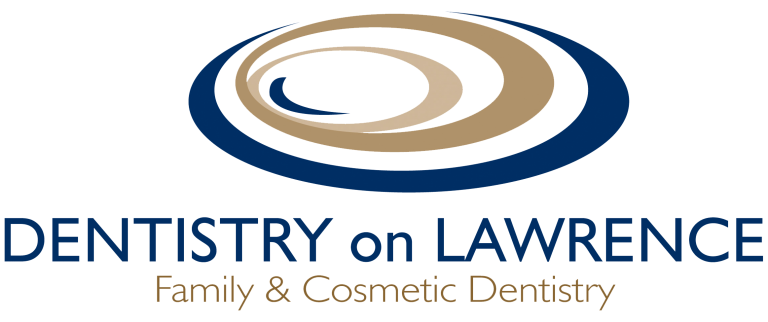Many patients avoid seeking care from a dentist offering sedation due to widespread misconceptions. At Dentistry on Lawrence in Kitchener, understanding the truth about sedation dentistry helps patients make informed decisions.
Common Myths About a Dentist Offering Sedation
Misinformation about sedation dentistry creates unnecessary anxiety for patients. A dentist offering sedation encounters these myths regularly. Patient education becomes essential for proper treatment decisions.
The most persistent myths often stem from outdated information. Confusion with general anesthesia also contributes to these misconceptions. Modern sedation dentistry uses carefully controlled medications and monitoring techniques.
Myth: Sedation Dentistry Is Dangerous
Many patients believe that visiting a dentist offering sedation involves significant risks. However, dental sedation has an excellent safety record. Serious complications occur in less than 0.01% of cases.
Licensed dental professionals receive extensive training in sedation administration. They also learn emergency protocols thoroughly. Continuous monitoring of vital signs ensures patient safety throughout procedures.
Modern equipment and medications have made sedation dentistry safer than ever. A qualified dentist offering sedation follows strict safety protocols. These protocols are established by dental regulatory bodies across Canada.
Myth: Patients Become Completely Unconscious
Another common misconception suggests complete unconsciousness during treatment. Most dental sedation involves conscious sedation instead. Patients remain awake and responsive throughout treatment.
Patients can follow simple instructions when necessary. They can also communicate with the dental team. This level of sedation provides relaxation while maintaining protective reflexes.
Safety Evidence Supporting Dentist Offering Sedation
Scientific research consistently demonstrates the safety of sedation dentistry. A qualified dentist offering sedation follows strict protocols. These protocols ensure patient safety and treatment effectiveness.
Studies show that adverse events are primarily related to inadequate training. Improper patient selection also contributes to complications. Proper screening and monitoring eliminate most potential problems.
Professional Training Requirements
Every dentist offering sedation must complete specialized training programs. They must also maintain current certifications. These requirements ensure practitioners understand medication interactions thoroughly.
Regular continuing education keeps sedation providers updated. They learn the latest safety protocols and techniques. This ongoing training maintains high safety standards in modern dental practice.
Patient Monitoring Standards
Modern sedation dentistry employs sophisticated monitoring equipment. This equipment tracks vital signs continuously. Pulse oximetry and blood pressure monitoring provide real-time information.
Emergency equipment and medications remain readily available during procedures. Dental teams train regularly in emergency response protocols. They can handle any unexpected situations promptly.
Cost Considerations for Dentist Offering Sedation
Many patients worry about the expense of sedation services. While sedation adds to treatment costs, benefits often justify the investment. This is especially true for anxious patients.
The cost of sedation varies depending on type and duration. Nitrous oxide typically costs less than oral sedation. IV sedation usually represents the highest cost option.
Insurance Coverage Possibilities
Some dental insurance plans provide partial coverage for sedation dentistry. Coverage applies when sedation is medically necessary. Patients with documented dental phobia may qualify for assistance.
Many dental offices offer payment plans or financing options. These options make sedation dentistry more accessible. Discussing financial options helps patients find affordable solutions.
Long-Term Value Benefits
Sedation dentistry often allows completion of multiple procedures in single appointments. This efficiency can reduce overall treatment costs. It also minimizes time away from work.
Patients who receive regular care with sedation support avoid costly emergencies. Preventive care becomes possible for those who previously avoided visits. This prevents more expensive treatments later.
Addressing Addiction Concerns About Dentist Offering Sedation
One significant myth suggests addiction risks with regular sedation use. The medications used have minimal addiction potential. This applies when used appropriately for dental procedures.
Dental sedation medications are administered in controlled clinical settings. They serve specific medical purposes only. Short-term, supervised use does not create dependency issues.
Reality of Sedation Medications
Most sedation dentistry uses medications from the benzodiazepine family. Nitrous oxide is also commonly used. These medications have well-established safety profiles.
The doses used for dental sedation are typically lower. They are lower than those prescribed for anxiety disorders. Single-appointment use eliminates repeated exposure that could cause dependency.
Professional Medication Management
A responsible dentist offering sedation carefully evaluates each patient’s medical history. They review current medications thoroughly. This screening identifies patients at higher risk for complications.
Proper documentation and follow-up ensure appropriate medication use. Patients receive clear instructions about post-treatment care. They also learn about medication effects for safe recovery.
Making Informed Decisions About Dentist Offering Sedation
Understanding facts about sedation dentistry helps patients make appropriate choices. A qualified dentist offering sedation can address specific concerns. They explain how sedation might benefit individual situations.
Open communication between patients and providers ensures informed decisions. This communication is based on accurate information rather than fears. This collaborative approach leads to better outcomes.
Ready to learn more about sedation dentistry options? Contact Dentistry on Lawrence at 519-744-6533. Visit the office at 232 Lawrence Ave in Kitchener. The experienced team can discuss how sedation dentistry might help overcome anxiety safely.
